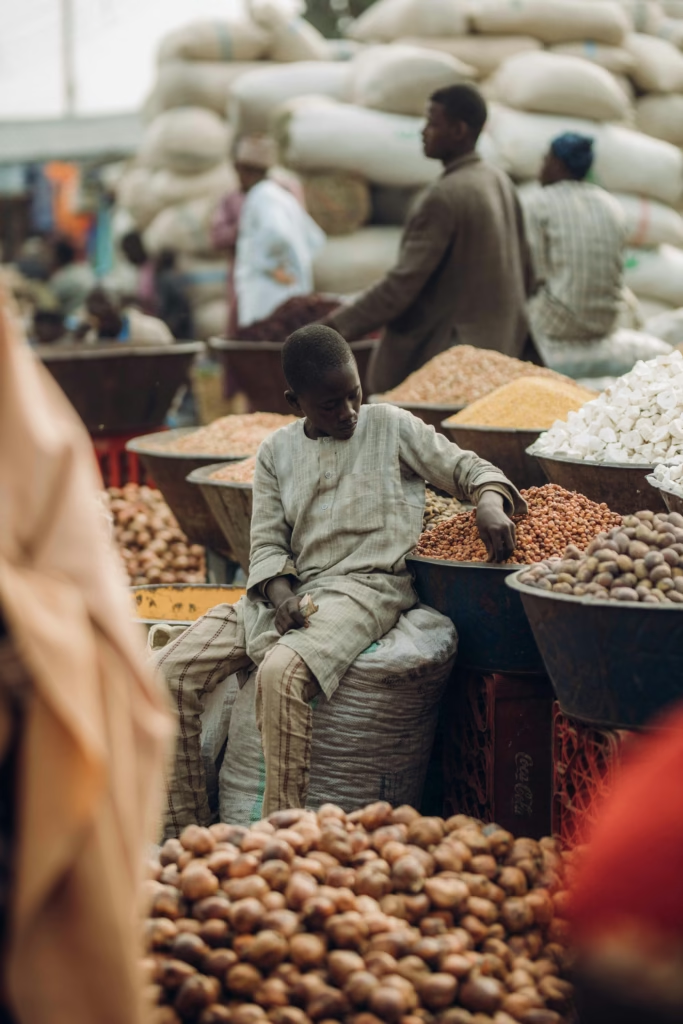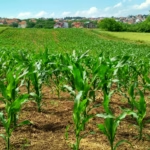
Introduction
In recent years, African agriculture has been receiving increasing global attention. With its vast arable land, diverse climate conditions, and growing export infrastructure, the continent is emerging as a key player in the international agricultural market. The rising demand for African agricultural commodities is driven by multiple factors, including population growth, shifts in global trade policies, and a greater focus on sustainability. This blog explores why African agriculture is becoming a major contributor to the world’s food supply and how it is shaping global trade.
1. Abundant Natural Resources and Favorable Climate Conditions
Africa is home to vast stretches of fertile land, suitable for growing a wide variety of crops. The continent’s diverse climate zones support the cultivation of essential commodities such as coffee, cocoa, cashew nuts, sesame seeds, and grains. Unlike many other agricultural regions facing land depletion and environmental constraints, African agriculture still has enormous untapped potential. The availability of fertile land allows farmers to expand production, meeting the growing global demand for food and raw materials.
2. Increasing Global Demand for Organic and Sustainable Produce
Consumers worldwide are becoming more conscious of food quality, environmental impact, and sustainability. Many African farmers practice organic and traditional farming methods, avoiding excessive use of chemicals. This makes African agriculture particularly attractive to global buyers looking for sustainably grown products. Additionally, various international organizations are promoting agricultural sustainability in Africa, providing funding and training to ensure that farming practices align with global environmental standards.
3. Government Initiatives and Agricultural Investments
Many African governments are prioritizing agriculture as a key economic sector. Policies supporting investment in modern farming techniques, irrigation infrastructure, and access to financial resources are helping boost production. Additionally, international investors and agribusiness companies are recognizing the potential of African agriculture and are investing in large-scale farming, processing facilities, and export networks. Countries like Nigeria, Kenya, and Ghana are leading the way in attracting foreign direct investment in agriculture.
4. Rising Export Markets and Trade Agreements
Africa’s agricultural commodities are increasingly in demand in regions such as Europe, Asia, and the Middle East. Trade agreements between African nations and international markets have facilitated easier access to global supply chains. The African Continental Free Trade Area (AfCFTA) is also playing a significant role in promoting intercontinental trade, allowing African farmers and exporters to reach broader markets. This has positioned African agriculture as a crucial supplier for commodities like cocoa from Ghana and Ivory Coast, cashew nuts from Nigeria, and coffee from Ethiopia.
5. The Role of Technology in African Agriculture
Technology is transforming African agriculture, improving productivity and efficiency. The adoption of modern irrigation techniques, precision farming, and digital platforms for market access is helping farmers enhance their yields and reduce post-harvest losses. Mobile apps and blockchain-based systems are also being used to improve transparency and traceability in agricultural trade. With the continued integration of technology, Africa is becoming a more competitive player in the global agricultural market.
6. Shift in Global Supply Chains and Food Security Concerns
The COVID-19 pandemic and geopolitical tensions have disrupted global supply chains, prompting countries to seek new sources of agricultural imports. Africa, with its untapped resources and growing production capabilities, has emerged as a reliable supplier. Additionally, global concerns over food security have led to increased interest in diversifying supply sources, making African agriculture a crucial solution to address food shortages in different parts of the world.
7. Challenges and Opportunities for Growth
Despite the positive growth in African agriculture, challenges remain. Issues such as inadequate infrastructure, limited access to financing, and climate change pose obstacles to large-scale agricultural expansion. However, with continued investment, policy support, and technological advancements, Africa has the potential to overcome these hurdles. Strengthening rural infrastructure, improving storage facilities, and enhancing logistics can further boost the continent’s agricultural exports.
Conclusion
The rise of African agriculture in global markets is a testament to the continent’s rich resources, sustainable practices, and increasing trade partnerships. As demand for high-quality agricultural commodities grows, Africa is positioning itself as a key player in global food security. With continued investments and improvements in infrastructure, the future of African agriculture looks promising, offering immense opportunities for farmers, investors, and international buyers.
For businesses looking to source high-quality agricultural products, Africa presents an attractive destination. By supporting African farmers and integrating them into global supply chains, the agricultural industry can ensure a more sustainable and food-secure future for all.











Add comment